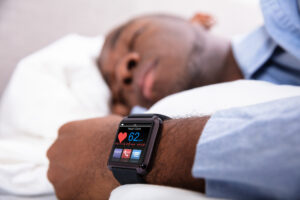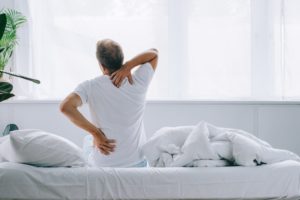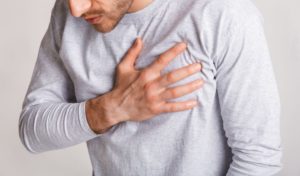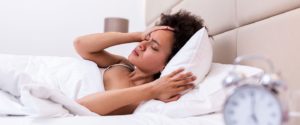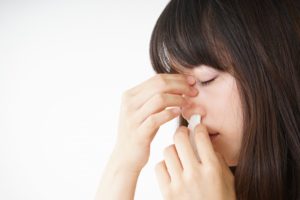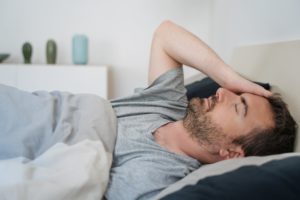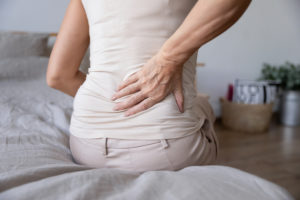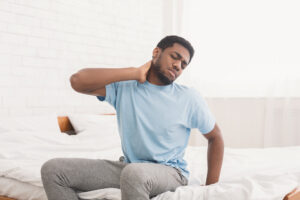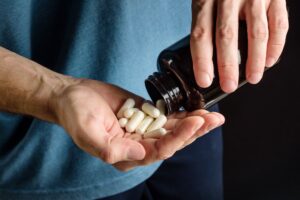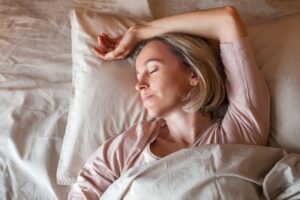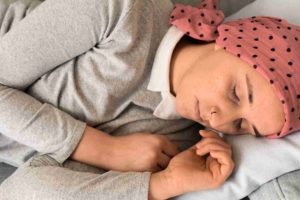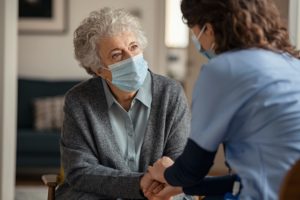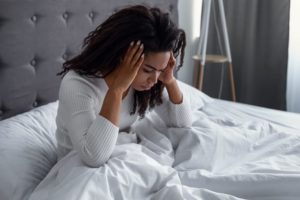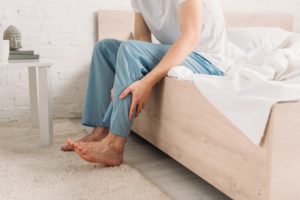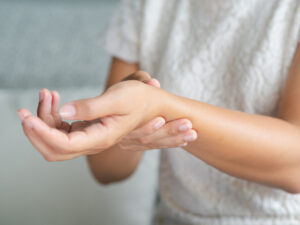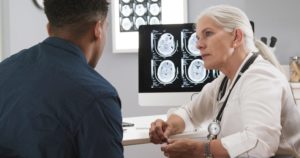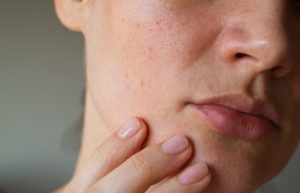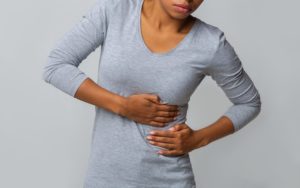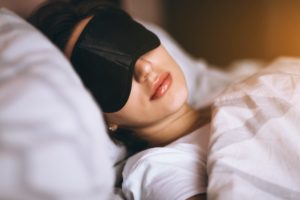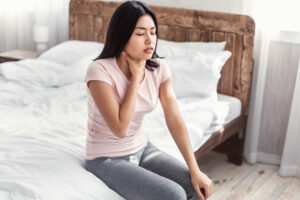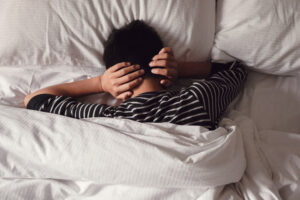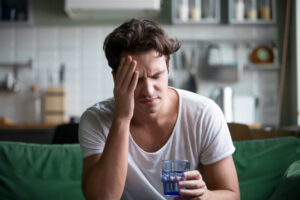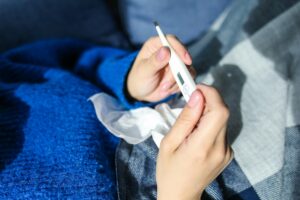When you buy through our links, we may earn a commission. Products or services may be offered by an affiliated entity. Learn more.
The Relationship Between Sex and Sleep
- Sex and sleep are complex, interconnected aspects of overall well-being.
- Sleep deprivation and sleep disorders can negatively influence libido and arousal.
- Sex can positively affect sleep by reducing stress and regulating hormones.
- Prioritize communication and sleep health for an improved sex life and more restful sleep.
Sex and sexuality are important components of health in adults. Sexual health is not only physical but also involves emotions, relationships, and broader quality of life.
Despite the major role that both sleep and sex have in overall wellness, the relationship between them has often been overlooked. Fortunately, though, expanding knowledge in health sciences has started to reveal an important, bidirectional link between sex and sleep.
While there is more research to be done, recognizing the connections between sleep and sex can create opportunities for enhancing each of these significant contributors to adult health.
Elements of Healthy Sleep and Sex
Sleep and sexuality are complex and involve both the mind and body. Reviewing the basic elements of healthy sleep and sex enables a more well-rounded understanding of the relationship between them.
Sleep
Sleep is essential for recuperation, and sleeping well requires getting a sufficient amount of rest, which is at least seven hours of sleep per night for most adults.
Sleep quality is also vital. A typical night’s sleep is made up of several sleep cycles, each of which is composed of individual sleep stages. Continuous sleep without interruption allows these stages to unfold properly, enabling truly restorative sleep.
Interestingly, there are gender- and sex-based differences in how sleep works that can influence the ability to sleep well.
Looking to improve your sleep? Try upgrading your mattress.
Sex
Like sleep, sex is made up of several different elements. In healthy sexual function, both sexes experience the following four stages:
- Desire for sex, also known as motivation for sex, or libido.
- Excitement or arousal, which involves physical reactions, such as blood flow to the penis or clitoris.
- Orgasm, which is the point of maximum excitement. In men, ejaculation, another stage in this process, typically occurs with orgasm.
- Resolution, which involves relaxation and positive feelings after orgasm and a gradual transition to a non-excited state.
When one or more stages of this process become disrupted, it can cause sexual dysfunction. Examples of sexual dysfunction include a loss of interest in sex, a lack of arousal, an inability to experience excitement or orgasm, and sex that is painful or not enjoyable. Sexual health problems can be primarily physical but are commonly tied to mental, emotional, or relationship issues that interfere with normal sexual activity.
Sexual problems can affect anyone, but the causes and symptoms are frequently distinct in men and women. Studies estimate that around 33% of men and 45% of women experienced at least mild sexual problems in the last year, and around 13% of men and 17% of women had more serious issues that caused them distress.
How Does Sleep Influence Sex?
Sleep deprivation has been associated with reduced sexual desire and arousal in women. As a result, insomnia, one of the most common sleep disorders, may be a risk factor for sexual dysfunction. A lack of sleep and disrupted sleep have also been linked to a higher risk of erectile dysfunction.
Several sleep disorders have been connected to sexual problems. Obstructive sleep apnea (OSA), which involves recurring pauses in breathing that disrupt sleep, has been associated with a significantly higher risk of erectile dysfunction. Studies have also shown that OSA is tied to sexual dysfunction in women.
Working non-standard hours, known as shift work, can throw a person’s circadian rhythm out of alignment and increase the risk of sexual problems.
Poor sleep can also hinder sex because of its effect on mental health. For example, a lack of sleep can make conflict with a partner more likely, fostering an emotional state that heightens stress, reduces intimacy, and detracts from a satisfying sex life.
Sleep deprivation may also raise the risk of impaired decision-making and risky sexual behavior that can lead to sexually transmitted infections or unplanned pregnancy.
How Does Sex Affect Sleep?
Sexual activity can often contribute to better sleep. After an orgasm, the body releases hormones, like oxytocin and prolactin, that can induce pleasant and relaxing feelings. Sex also reduces levels of the hormone cortisol, which is associated with stress.
Sex with a partner may enhance this hormonal response and facilitate greater feelings of closeness and intimacy that are conducive to sleep. In heterosexual partners, research has found this effect to be greater in men than women, which aligns with a popular social conception of men quickly falling asleep after sex.
However, when both people achieve orgasm during sex, the difference in sleepiness is no longer statistically significant. In this way, the association of sleepiness and sex for men in heterosexual relationships may, in part, reflect a disparity in satisfaction and orgasm achieved during sex with a partner.
Steps to Enhance Both Sleep and Sex
The relationship between sleep and sex creates an opportunity to improve both of them along with your overall well-being.
Improving Sleep
For many people, better sleep starts by raising the issue with a doctor. Sleeping problems and daytime sleepiness can be caused by underlying sleep disorders, like sleep apnea, that have effective treatments. Diagnosing and treating those conditions can meaningfully improve sleep and may improve sex.
Sleep hygiene is another critical aspect of quality sleep. It incorporates both the sleep environment and the daily habits that influence sleep. Specific tips that can strengthen sleep hygiene include:
- Making the bedroom inviting by setting a comfortable temperature, using dim and warm lighting, ensuring a pleasant smell, and having a mattress that is supportive and optimal for sex.
- Eliminating sources of sleep disruption from noise or light by using blackout curtains, a sleep mask, a white noise machine, and headphones or earplugs.
- Maintaining a sleep schedule that stays consistent, including on non-working days. The goal should be to have the same wake-up time and bedtime every day.
- Avoiding things that can interfere with sleep at night, including alcohol, tobacco, caffeine, late and heavy meals, and long naps in the late afternoon or evening.
- Establishing the bedroom as a technology-free zone in the lead-up to bedtime. This means putting away cell phones, laptops, and tablets for at least 30 minutes before bed.
- Finding time every day for physical activity and some exposure to natural light.
- Learning relaxation techniques and incorporating them into the nightly routine to prepare for bed.
Making an effort to improve sleep hygiene can help you get more of the sleep you need every day. In doing so, these healthy habits can also pave the way to a more vibrant sex life.
Prioritizing Sexual Health
Sexual health can include far-reaching aspects of sex and sexuality. Improved sexual health, including regular, satisfying sex, can boost your wellness and may facilitate better sleep.
As with sleep problems, it’s important to talk with a doctor about any concerns related to sexual health or sexual dysfunction. While many people are shy to raise these issues, it’s beneficial to discuss them openly and honestly with a health care provider. Remember that sexual problems are common, and doctors are trained to help address them.
For some couples, sex therapy can provide practical advice to enhance intimacy and sexual fulfillment. Although general tips for better sex are widely available, working with a professional can incorporate valid, evidence-based approaches to cultivating a more rewarding sex life.

Still have questions? Ask our community!
Join our Sleep Care Community — a trusted hub of sleep health professionals, product specialists, and people just like you. Whether you need expert sleep advice for your insomnia or you’re searching for the perfect mattress, we’ve got you covered. Get personalized guidance from the experts who know sleep best.
References
11 Sources
-
Consensus Conference Panel, Watson, N. F., Badr, M. S., Belenky, G., Bliwise, D. L., Buxton, O. M., Buysse, D., Dinges, D. F., Gangwisch, J., Grandner, M. A., Kushida, C., Malhotra, R. K., Martin, J. L., Patel, S. R., Quan, S. F., Tasali, E., Non-Participating Observers, Twery, M., Croft, J. B., Maher, E., … Heald, J. L. (2015). Recommended amount of sleep for a healthy adult: A joint consensus statement of the American Academy of Sleep Medicine and Sleep Research Society. Journal of Clinical Sleep Medicine, 11(6), 591–592.
https://pubmed.ncbi.nlm.nih.gov/25979105/ -
Basson, R. (2014, February). Overview of sexual dysfunction in women. MSD Manual Consumer Version., Retrieved February 25, 2021 from
https://www.msdmanuals.com/home/women-s-health-issues/sexual-dysfunction-in-women/overview-of-sexual-dysfunction-in-women -
Hirsch, I. H. (2020, July). Overview of sexual dysfunction in men. Merck Manual Consumer Version., Retrieved February 25, 2021 from
https://www.merckmanuals.com/home/men-s-health-issues/sexual-dysfunction-in-men/overview-of-sexual-dysfunction-in-men -
Briken, P., Matthiesen, S., Pietras, L., Wiessner, C., Klein, V., Reed, G. M., & Dekker, A. (2020). Estimating the prevalence of sexual dysfunction using the new ICD-11 guidelines. Deutsches Arzteblatt International, 117(39), 653–658.
https://pubmed.ncbi.nlm.nih.gov/33357346/ -
Kalmbach, D. A., Arnedt, J. T., Pillai, V., & Ciesla, J. A. (2015). The impact of sleep on female sexual response and behavior: A pilot study. The Journal of Sexual Medicine, 12(5), 1221–1232.
https://pubmed.ncbi.nlm.nih.gov/25772315/ -
Kohn, T. P., Kohn, J. R., Haney, N. M., Pastuszak, A. W., & Lipshultz, L. I. (2020). The effect of sleep on men’s health. Translational Andrology and Urology, 9(Suppl 2), S178–S185.
https://pubmed.ncbi.nlm.nih.gov/32257858/ -
Chen, K. F., Liang, S. J., Lin, C. L., Liao, W. C., & Kao, C. H. (2016). Sleep disorders increase risk of subsequent erectile dysfunction in individuals without sleep apnea: A nationwide population-base cohort study. Sleep Medicine, 17, 64–68.
https://pubmed.ncbi.nlm.nih.gov/26847976/ -
Petersen, M., Kristensen, E., Berg, S., & Midgren, B. (2013). Long-term effects of continuous positive airway pressure treatment on sexuality in female patients with obstructive sleep apnea. Sexual Medicine, 1(2), 62–68.
https://pubmed.ncbi.nlm.nih.gov/25356289/ -
Pastuszak, A. W., Moon, Y. M., Scovell, J., Badal, J., Lamb, D. J., Link, R. E., & Lipshultz, L. I. (2017). Poor sleep quality predicts hypogonadal symptoms and sexual dysfunction in male nonstandard shift workers. Urology, 102, 121–125.
https://pubmed.ncbi.nlm.nih.gov/27988267/ -
Wilson, S. J., Jaremka, L. M., Fagundes, C. P., Andridge, R., Peng, J., Malarkey, W. B., Habash, D., Belury, M. A., & Kiecolt-Glaser, J. K. (2017). Shortened sleep fuels inflammatory responses to marital conflict: Emotion regulation matters. Psychoneuroendocrinology, 79, 74–83.
https://pubmed.ncbi.nlm.nih.gov/28262602/ -
Lastella, M., O’Mullan, C., Paterson, J. L., & Reynolds, A. C. (2019). Sex and sleep: Perceptions of sex as a sleep promoting behavior in the general adult population. Frontiers in Public Health, 7, 33.
https://pubmed.ncbi.nlm.nih.gov/30886838/








